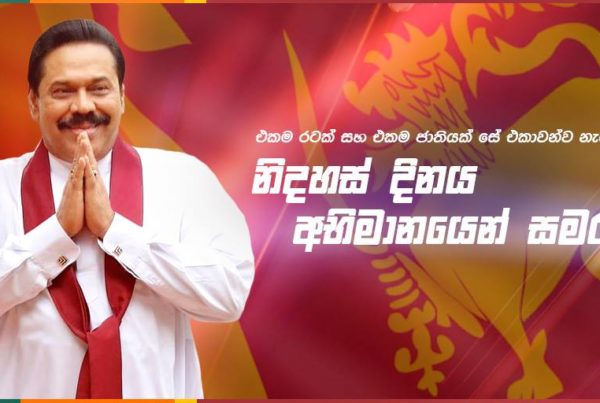(A lesson for Rajapaksa)
Mahinda Rajapaksa’s achievement at the local government elections was exceptional. He may believe that it was his Sinhala-Buddhist nationalist message that won him his victory. But there is another perspective he ought to consider. He lacked the state machinery he had in 2010 and 2015. He even lacked the usual party machinery. Yet he succeeded. This result demonstrates the strength of his charisma and the power of his personality.
Mahinda Rajapaksa is, without a shadow of a doubt, the most popular politician in Sri Lanka today. But if he is capable of doing so well without the aid of a repressive state apparatus – the kind he relied on in 2015, and still lost – then he might ask himself, ‘do I need to rely on such methods in the future?’
When he permitted minorities to be abused, they came out in droves to vote against him. They still may. He could ignore them and hope to recapture the SLFP voter base to complete his return to the helm. Yet a large part of that one-dimensional strategy relies on the continued inertia of coalition supporters. This is why Rajapaksa cannot be certain about winning a national election in the future. If there is one lesson Rajapaksa may need to learn from January 2015 (and strangely, even the local government elections of 2018), it is that he still fails to command the confidence of a majority of Sri Lankans. One might therefore hope that his unlikely victory this February prompts him to consider the value of a more moderate course.
His followers will surely not abandon him. For he alone can afford to be moderate without fearing backlash. If he, or his proxy, desires to win a national election in the future, it will surely have to be on a platform that has appeal beyond nationalist politics.
The local government elections of 2018 will have implications for voters, the coalition, and Rajapaksa in the coming months. These implications – like the elections – may be difficult to predict. Yet lessons from the last three years ought to inform the thinking of each of these actors. The voter must surely be more pragmatic. The coalition must surely be more courageous. Rajapaksa must surely be more moderate.
